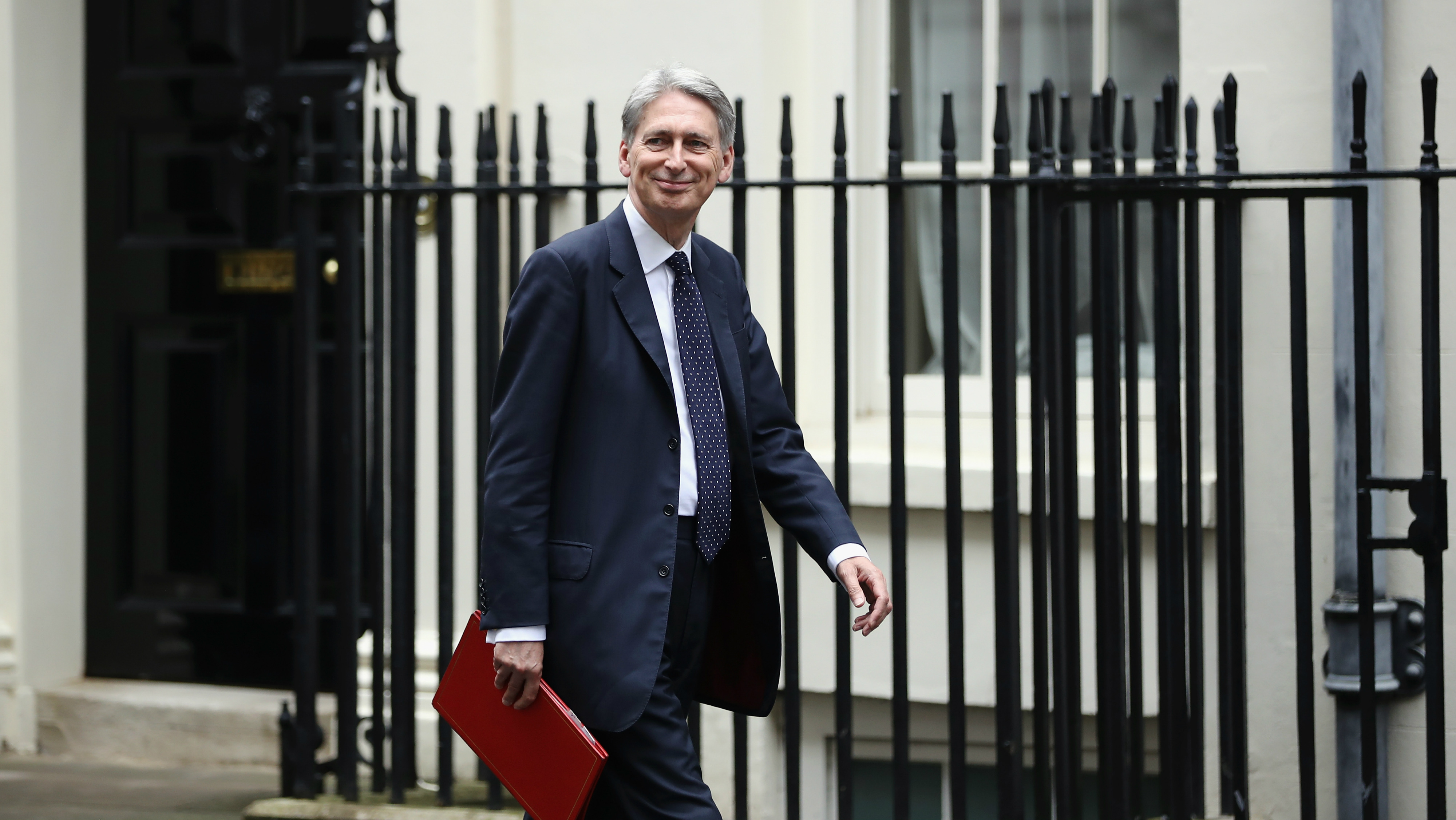Brexit, the single market and City passporting rights
Why leaving the EU could have a devastating effect on banks based in the UK

A free daily email with the biggest news stories of the day – and the best features from TheWeek.com
You are now subscribed
Your newsletter sign-up was successful
The UK could continue sending billions of pounds to Brussels after it has left the EU in order to maintain passporting rights for banks.
Despite hard Brexit posturing since the Conservative Party conference, ministers could be willing to relax some demands to retain single market membership – or at least some of its privileges for key sectors.
What is the single market?
The Week
Escape your echo chamber. Get the facts behind the news, plus analysis from multiple perspectives.

Sign up for The Week's Free Newsletters
From our morning news briefing to a weekly Good News Newsletter, get the best of The Week delivered directly to your inbox.
From our morning news briefing to a weekly Good News Newsletter, get the best of The Week delivered directly to your inbox.
It's an economic arrangement that underpins the EU and allows tariff-free trade across the continent, giving UK exporters open access to a market of 500 million people.
What is passporting?
Financial passports, a key component of the single market, "give UK banks, insurers and asset managers the right to sell their services freely across the rest of the EU", says the Daily Telegraph. Banks based elsewhere in the EU have an equivalent right to operate in Britain.
Why do they matter?
A free daily email with the biggest news stories of the day – and the best features from TheWeek.com
Free access to the single market was the big argument in favour of staying in the EU. It makes it "as easy to trade between London and Lisbon as it is between London and Liverpool", Catherine Barnard, a professor of EU law at the University of Cambridge, writes in Full Fact.
Passporting is arguably the single most significant benefit. A bank need only be regulated in London to trade across Europe – and with a common language and very liquid markets, the City has attracted banks from all over the world to do just that.
Financial services employ 1.9 million people in Britain and accounts for about a tenth of GDP.
What happens if the City loses these rights?
Forecasts vary. "Banks could start making decisions to move assets out of the UK as early as the end of 2017 if there is no deal in place to maintain their rights to sell services freely across the European Union," The Guardian says.
But ratings agency Moody's argues the effect might only be "modest" and mainly the result of management attention being diverted.
Global banks with a London-based European headquarters also have operations on the Continent, so they could simply beef up one of these arms and obtain the necessary licence to operate across the EU without radically restructuring their business.
Are there alternative options?
The incoming Markets in Financial Instruments Directive II (MiFID II) allows for non-EU financial firms to operate across the continent as long as they are based in a regime with "equivalent" regulation, Moody's says.
This opens the door for UK banks to keep their passporting rights as long as the government is prepared to adopt EU rules. That'll anger some in the sector, though, as lenders will have to agree to EU rules without them being negotiated by British politicians.
There is also the option of striking a bespoke exit deal with the EU. The Financial Times says Theresa May has not "ruled out making future payments to the EU" to secure passporting privileges.
How much would the UK pay to keep passporting?
That remains unclear, but any post-Brexit payment to the EU is likely to prove controversial. "To appease Tory Brexiters, ministers are looking at ways to finesse future payments," says the FT – for example, by inflating British contributions to EU security projects.
-
 Political cartoons for February 12
Political cartoons for February 12Cartoons Thursday's political cartoons include a Pam Bondi performance, Ghislaine Maxwell on tour, and ICE detention facilities
-
 Arcadia: Tom Stoppard’s ‘masterpiece’ makes a ‘triumphant’ return
Arcadia: Tom Stoppard’s ‘masterpiece’ makes a ‘triumphant’ returnThe Week Recommends Carrie Cracknell’s revival at the Old Vic ‘grips like a thriller’
-
 My Father’s Shadow: a ‘magically nimble’ film
My Father’s Shadow: a ‘magically nimble’ filmThe Week Recommends Akinola Davies Jr’s touching and ‘tender’ tale of two brothers in 1990s Nigeria